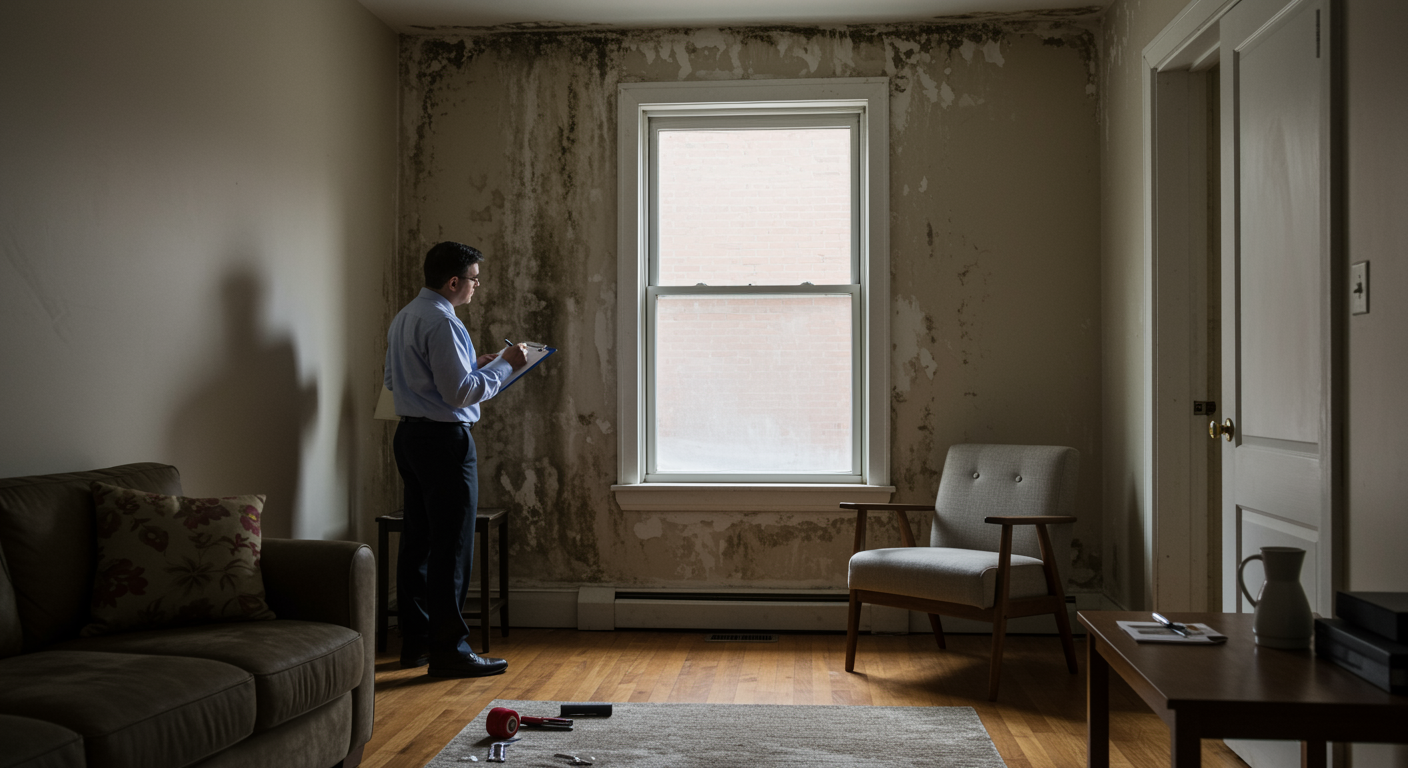Why Mold Complaints Should Never Be Ignored by Landlords?
Ignoring mold issues is risky—not only for your tenants’ health but also for your legal standing. Mold exposure can lead to respiratory problems, allergic reactions, and even structural damage to the property. In New Jersey, tenants may have grounds to withhold rent or terminate a lease if landlords do not respond to hazardous living conditions.
By addressing mold complaints quickly, landlords in Monmouth County demonstrate responsibility and help avoid escalated disputes, code violations, or lawsuits.
What Are Landlords Legally Required to Do About Mold in New Jersey?
While New Jersey doesn’t have a specific “mold law,” landlords are required under the state’s Landlord-Tenant laws to provide a safe and habitable environment. This includes protection against excessive moisture and mold growth. If mold makes a unit uninhabitable, landlords could face fines or tenant claims.
Legal responsibilities include:
- Responding promptly to written tenant complaints
- Inspecting the premises for mold and moisture problems
- Hiring licensed professionals for significant mold remediation
- Fixing the source of moisture (roof leaks, plumbing issues, poor ventilation)
Steps Monmouth County Landlords Should Take When a Mold Complaint Arises
Handling mold complaints quickly and systematically can save time, money, and your reputation. Here’s a recommended process:
- Step 1: Document the complaint – Request the tenant’s concerns in writing and log the date received.
- Step 2: Conduct a visual inspection – Look for water stains, mildew smells, and visible mold.
- Step 3: Fix moisture sources – Whether it’s a leaky pipe or poor ventilation, address it immediately.
- Step 4: Hire a professional – For large or hidden mold issues, contact licensed remediation experts like Advanced Disaster Recovery Inc.
- Step 5: Follow up – Confirm repairs with tenants and inspect for recurring issues.
How to Prevent Mold Before Tenants Complain?
Prevention is always better—and cheaper—than remediation. Consider the following tips to help reduce mold risks in your rental properties:
- Install dehumidifiers in basements or damp areas
- Ventilate bathrooms and kitchens properly
- Check and repair leaks immediately
- Seal windows and roofs seasonally
- Educate tenants on mold prevention best practices
Regular maintenance and inspections can go a long way toward avoiding complaints and protecting property value.
When Should You Call a Mold Remediation Company?
DIY mold cleanup is only appropriate for very small areas (under 10 square feet) with non-toxic mold types. For larger infestations, hidden mold, or repeated complaints, landlords should always call in a licensed remediation company.
Advanced Disaster Recovery Inc. offers fast, reliable mold inspections and remediation services across Monmouth County. Our certified experts use advanced technology to find hidden mold, remove it safely, and prevent future growth. Letting pros handle the cleanup ensures compliance with health standards and gives peace of mind to tenants.
Benefits of Partnering With Advanced Disaster Recovery Inc.
Trying to handle mold issues on your own can be time-consuming, and mistakes could cost you thousands in legal disputes or repairs. That’s why so many landlords in Monmouth County trust Advanced Disaster Recovery Inc. for mold-related issues. We handle everything from start to finish—including assessment, removal, and repairs—so you can stay focused on your tenants and your business.
Benefits of working with us:
- Fast response times and emergency services
- Fully licensed and insured mold remediation professionals
- Non-toxic, EPA-approved mold removal methods
- Clear communication and full documentation
If you’re overwhelmed or unsure how to proceed, don’t wait—contact our team today to schedule a mold assessment or emergency response.
Don’t Risk Legal Trouble—Take Action Now
As a landlord, your responsibility is to provide a safe home—and ignoring mold complaints puts that at risk. With the support of Advanced Disaster Recovery Inc., you can handle tenant concerns professionally, avoid costly mistakes, and maintain your property’s reputation.
If you don’t have the time or resources to tackle mold cleanup on your own, let our team handle it for you—quickly, legally, and thoroughly. We’ve helped countless Monmouth County landlords protect their investments, and we’re ready to help you too.

